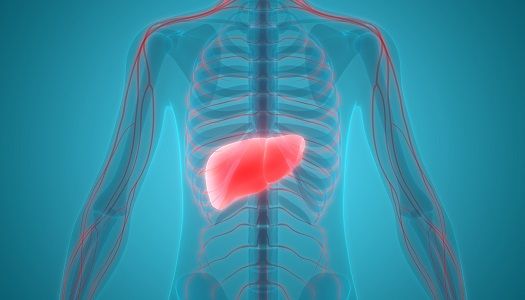Article
TDF Slows Liver Fibrosis for Patients with HIV, Hepatitis B Coinfection
Author(s):
Researchers analyzed liver fibrosis levels in HIV, hepatitis B coinfection.

Researchers evaluated liver fibrosis levels in patients co-infected with HIV and hepatitis B being treated with long-term tenofovir disoproxil fumarate (TDF). Led by Anders Boyd, PhD, of Saint-Antoine Hospital, in Paris, France, the team conducted a prospective cohort study with 167 participants and found that most liver fibrosis levels remained stable in co-infected patients.
TDF has been associated with declines in patients with hepatitis B with virtually no resistance mutations and that it is an “ideal component of antiretroviral therapy (ART),” according to the researchers, in co-infected patients because it inhibits replication in both viruses. Previous studies examined the efficiency of TDF in co-infected patients for up to 3 years; this one followed patients from May 2002 to May 2003 through 2010 to 2011. Patients were assessed every 6 to 12 months.
TDF treatment began at the baseline visit and patients were classified as none, mild, or moderate fibrosis (F0, F1, or F2) or severe fibrosis or cirrhosis (F3 or F4). The median time patients were followed was 60 months, and the researchers reported, “at baseline, undetectable HBV-DNA was achieved in 44 (32.8%) at year one, 80 (59.7%) at year two, 101 (75.4%) at year three and 118 (88.1%) at the end of follow up.”
A total of 15 patients discontinued TDF treatment, for a wide variety of reasons including renal-associated toxicity and changing treatments due to HIV resistance. Three patients died during follow-up: one due to myocardial infarction, one to severe pneumonia, and one to AIDS-related illness.
“In this prospective study, we observed that the majority of HIV-hepatitis B co-infected patients remained at the same level of fibrosis when undergoing tenofovir-containing ART for up to 9 years,” the authors wrote in the Journal of the International AIDS Society. They noted that their findings mirror those of shorter term studies, but that they were surprised to find 17% of participants with low-level liver fibrosis at the baseline visit eventually progressed to F3 or F4 levels in later years. However, the change could be attributed to changes in circulating markers because a noninvasive score was used in the study.
Although the researchers were surprised to find that close to one-fifth of the participants had an increase in fibrosis scores, they said, “we found a rare incidence of HCC [hepatocellular carcinoma] and death associated with liver disease during TDF treatment, which was much lower compared to other cohorts of co-infected patients with suboptimal antiviral treatment, suggesting some clinical benefit to the treatment.” Additionally, age and gender were factors, with those patients who were both male and older progressing to F3 or F4 more often. Exposure to protease inhibitors also seemed to be a risk factor for progressing from F0, F1, or F2 to severe fibrosis or cirrhosis.
“Liver fibrosis, as determined by a validated noninvasive surrogate, decreases in a small minority of HIV-hepatitis B co-infected patients during TDF,” the team concluded, and suggested that additional research is needed to investigate the possible link between metabolic disorders and liver fibrosis.
The study, “Liver fibrosis regression and progression during controlled hepatitis B virus infection among HIV-HBV patients treated with tenofovir disoproxil fumarate in France: a prospective cohort study,” was published in the Journal of the International AIDS Society (JIAS).
Related Coverage:
New Test for Hepatitis B Antigens
CDC Announces National HIV Infection Decline, But It’s Not All Good News
How Can We Stop Onward Transmission in HIV and Other Infectious Diseases?





